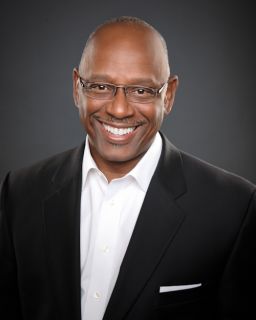Editor’s Note: Cedric L. Alexander is a former deputy mayor of Rochester, New York, and past president of the National Organization of Black Law Enforcement Executives. He is the author of the forthcoming book, “In Defense of Public Service: How 22 Million Government Workers Will Save Our Republic” (Berrett-Koehler Publishers). The opinions expressed in this commentary are his own. Read more opinion articles on CNN. To learn more about #livingwhileblack, watch “United Shades of America with W. Kamau Bell” on Sunday at 10 p.m. ET/PT.
The function of the police is to serve and protect. The function of the 911 system is to summon the police to serve and protect. Recently, however, some people have been using 911 to make the police complicit in their racial bias.

In April 2018, for instance, 911 was used to call police to a Philadelphia Starbucks because two African-American men did not order anything while waiting for a friend to show up. In May of that year, a white Yale student used 911 to summon police because a black student was napping in her dorm’s common room; she was a black Yale graduate student. That same month, a white woman dialed 911 to report a black family barbecuing beside a lake in Oakland, California.
Two jurisdictions have recently moved to crack down on racially motivated 911 calls. The Oregon state Senate approved a bill to enable victims of bias-motivated 911 calls “to sue the caller for up to $250 in small-claims court. In Michigan, the city of Grand Rapids is considering enacting an ordinance that would make it a “criminal misdemeanor to racially profile people of color for participating in their lives.” The ordinance would subject those who make racially biased 911 calls to a $500 fine.
I am absolutely convinced that the legislators and city commissioners behind this bill and proposed ordinance have their hearts in the right place. It is a good, just and compassionate place. Nevertheless, the legislation promises to be more problematic than effective. The Oregon law would give victims of bias-motivated 911 calls standing to file suit – at $250, a token suit – which would prevail only if the plaintiff can “prove the caller had racist intent, and that the caller summoned a police officer to purposefully discriminate or damage a person’s reputation.”
Speaking as someone who has devoted most of a 40-year career to law enforcement, serving as everything from deputy sheriff to police chief and director of public safety, here are the relevant facts as I see them.
First, bias-motivated 911 calls are real – common, in fact. Second, bias-motivated 911 calls are wrong – hurtful and just plain wrong. Third, they are dangerous, putting lives in jeopardy by sending officers on unnecessary calls, thus making them unavailable for real emergencies. Worse, bias-motivated calls pit the police against the public in potentially dangerous confrontations. Although officers are trained to think before they act, they also respond to every call with a heightened awareness of imminent danger. People don’t call 911 because they feel safe, secure and happy.
Worst of all, responding to a bias-motivated call makes officers unwilling actors in a bias-driven drama. This has the potential of damaging police-community relations, eroding the community’s trust in law enforcement and the law itself, calling into question the legitimacy of the individual officers responding to the call. Nowhere is this truer than in communities of color.
As well-intentioned as the Grand Rapids and Oregon proposals are, establishing mens rea – the accused person’s consciousness of wrongdoing – is a complex and solemn task that often consumes days or even weeks of trial time, involving attorneys, juries and judges. Practically speaking, I don’t see many suits being brought under these laws, and I imagine far fewer such suits would succeed.
As for the Grand Rapids proposal, it exists only as a proposed amendment to the city code, but speaking as a former street cop, I have to say that the city’s lawyers will have their work cut out for them trying to translate the fuzzy concept of “racially profil(ing) people of color for participating in their lives” into an arrestable offense.
Ultimately, the risks inherent in these measures outweigh any good they might do, such as raising a community’s consciousness. The danger here is that fear of a lawsuit or misdemeanor criminal charge will discourage citizens from making legitimate 911 calls regarding legitimately suspicious activity or even actual crimes. We want people to use 911. We instruct the public that if they see something, they should say something. Better to make a 911 call that proves unwarranted than to avoid making a call that might save a life, prevent a crime or help to solve a case.
Bias-motivated 911 calls are real, they are common, and they are both hurtful and wrong. They are also already against the law. I can’t think of any jurisdiction that does not have a law against falsely reporting a crime. Surely, at least some bias-motivated 911 calls can be prosecuted under these existing laws.
But we need something more effective than threatening people with vague laws and lawsuits. Our communities would be better served if their police departments and their schools would do something to educate people on how bias distorts perceptions, produces fear and raises suspicions.
Laws and lawsuits are afterthoughts and moral bandages. They do not address the systemic social, economic, political and personal drivers of racism, xenophobia and irrational fear of otherness.
The strength of the United States is and has always been its diversity. Democracy, a form of government built on and for diversity, demands that each of us overcome our biases, and neither a $250 lawsuit nor a $500 misdemeanor fine is going to help us in this most vital, rewarding and unifying enterprise.



